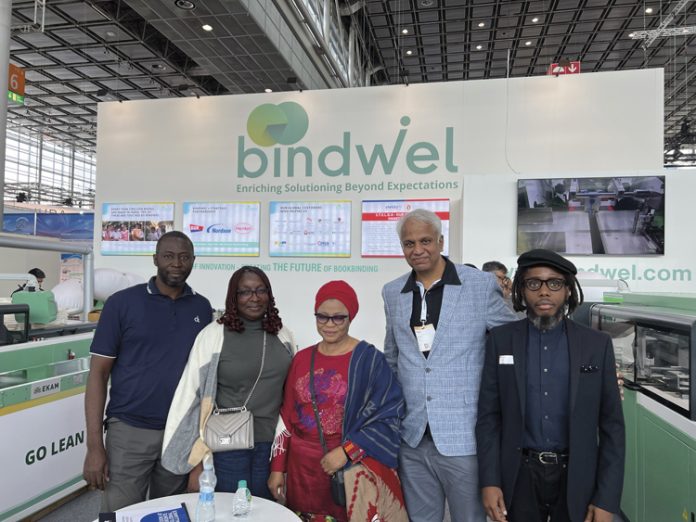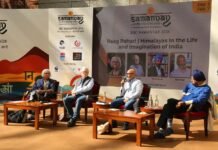First of all, I will not pontificate on drupa here – why give free advice when both exhibitors and exhibition organizers are loathe to act on advice from mere ‘journalists.’ However, I will reiterate that we saw several instances of an important trend at drupa – even though it was in a way contrary to the thinking of the organizers, who believe that technology drives growth.
The significant trend that is widespread, especially in the emerging economies of Asia, Africa, Latin America, and Eastern Europe, is that technology is merely a lever. What drives growth in print and packaging is content, education, knowledge, communication, and transactions of goods and services. It’s the economy and the aspiration to growth that stems from being able to reproduce your population and produce agricultural and consumer products, goods, and services.
Without going into politics, I will dare to say that the printers of India are looking to an increase in the expenditure on public education – something which all governments past and present have promised and failed to deliver. Even PM Manmohan Singh pledged to double the education budget from 2.5% to 5% but didn’t deliver – and the current 1.5% budget can be easily doubled to 3% by a far more prosperous and determined government. As Kai Buentenmeyer, director of Bindwel said to us at drupa, the annual Indian production of 3 billion books can easily be doubled. “We need to post this 6 billion number,” he said emphatically.

—insta-attracted-a-lot-of-visitors-from-Europe,-US-and-Japan
Buentenmeyer also remarked that digital experiments with educational books have failed in the West. He has confidence in the Indian authority’s belief that books, paper and writing still matter in education. This is especially true as we aspire to bring up not just engineers and coders but creative thinkers and problem solvers – conscious thinkers and participants in economic and cultural growth. drupa24 demonstrated that commercial printing is prospering on the back of the knowledge economy – book production – local, national and global. Hall 5 with Smyth, Muller-Martini, Bindwel and many others in finishing and binding was one of the busiest halls at drupa.
Bindwel showed three ground-breaking machines at drupa that were appreciated by Europeans, Africans, and Latin Americans alike – visitors from 90 countries (many already customers) came to the stand, which became a meeting point for the Indian visitors at the show too. The Ekam was demonstrated as a lean, efficient perfect binder designed specifically for textbooks – the machine pushed the idea of standardization which will, of course, bring great efficiencies to book production.
The second Bindwel technology shown was the highly flexible perfect INSTA binder, ideal for on-demand book printing. Surprisingly, even to Sajith Pallipuram, this machine attracted substantial global attention at the show. This reflects not only the upsurge in book production but also the transition to digital printing of most general books that are no longer needed in textbook quantities.
Even when mid-length and short-run books are printed on sheetfed and web offset presses, overruns can be avoided and short signatures replaced easily on digital presses. Every significant commercial offset book printer and exporter in India has added at least one digital press for shorts, short runs, sampling and advance copies. The INSTA binder threatens to become a book production must-have, rather than a novelty, just for digital book printers.
The third binder at the Bindwel stand from the Freedom series is a versatile perfect binder that handles both short and long runs with agility and is capable of inline integration. It speaks loudly to committed cost-effective book printers around the world.
Bindwel’s managing director Sajith Pallipuram notes, “All three machines generated significant interest, but the INSTA series received significant attention due to its advanced capabilities in handling books on demand, which allows for high customization and quick changeovers. This should catapult Bindwel to the exclusive club of digital post-press solution providers, globally.
“We had the pleasure of welcoming visitors from over 90 countries, with a strong representation from the Maghreb region, East and West Africa, South Africa, the Middle East, West Asia and Eastern Europe. We highlighted the global appeal and relevance of our bookbinding solutions. The diverse international presence indicated our role in shaping global book production standards.
“We are extremely proud of the positive feedback we received on our machines’ design, automation features, and the overall Bindwel experience. Many visitors from Europe were taken aback when Kai Buentemeyer told them that these machines were built in India…We look forward to continuing these relationships and exploring new ones as we advance the frontiers of bookbinding technology.”
Minor corrections including the caption of the top photograph and some spelling of names were made on 30 June 2024. The July edition of Indian Printer and Publisher which contains the print version of this article was mailed out on 27 June 2024. – Editor


















